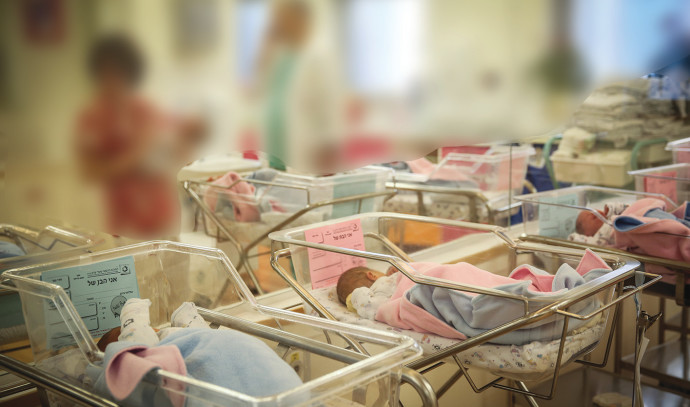Although the bags are seen as convenient to use and apparently contain “healthy food”, they may cause health, developmental and environmental damage, states the Ministry of Health.
Their consumption in Israel increased by more than 600% between 2018-2022, and the Ministry of Health worked for about two years and formulated an opinion – and a clear message – on the matter. The position paper is signed by professionals from various health fields: nutrition, medicine, child development, occupational therapy, communication clinics and sustainability.
Is there anything wrong with fruits and vegetables?
The bags are seen as containing “healthy food” – fruits and vegetables, allow flexibility for parents, and offer “nutrition on the go”, suitable for the pace of life and workload of many families. However, the potential damage to the development and health of babies and toddlers, and the impact on eating patterns at this critical age, must be taken into account, along with the investment in product marketing by the manufacturers and distributors.
Questions like what you eat and how much you eat are only part of the field of nutrition. “How” one eats is of great importance: with cutlery, by hand, drinking from a bottle, cup or bag; whether or not the meal is accompanied by eye contact, talking with the baby/toddler. The same content. Both have a harmful effect over time. The full position paper can be read on the Ministry of Health website, but here are the main points.
The harmful effects of the bags
The nutritional composition: When you look closely at the composition of the animals in these bags, you discover that they may provide significant amounts of sugar and calories to the daily menu of our little ones. The ease of eating can lead to high consumption in a short time compared to eating pieces of fruit or crushed fruit eaten with a spoon.
The industrial process that turns the fruits and vegetables into a smooth, semi-liquid puree may not only change the nutritional value and the availability of the essential nutrients, but may even affect the delicate balance of the “friendly” intestinal bacteria and disrupt the baby’s natural satiety mechanism. As a result, the risk of overweight and obesity increases.
Picky eating: eating food from pacifier bags may lead to picky eating later in life, with an emphasis on the low consumption of fruits and vegetables. When our baby eats mostly from pacifier bags, he misses the opportunity to get to know the unique look, smell and texture of each individual fruit and vegetable.
The flavor combinations in the bags can also confuse the young palate and make it difficult to identify each fruit or vegetable by itself. Consuming the fatty food in bags may delay the baby’s exposure to more advanced food textures.
Order in meals: pouches of pacifier food that are eaten “on the go” and not as part of a regular daily routine, may harm the establishment of regular and regular meals. Regular habits in the daily routine have been proven to be an important and significant basis for maintaining a healthy lifestyle throughout the years of life.
Dental health: Foods based on fruits and vegetables in bags may contribute a significant amount of sugar to the baby’s daily menu. Prolonged eating from the bags especially endangers the health of the teeth, because the high-sugar puree stays longer in the oral cavity, increasing the risk of tooth decay. In addition, the acidity of the animals from pacifiers can cause erosion of the tooth enamel (erosion) and worsen the damage to the teeth compared to foods that are consumed by chewing.
Developmental effects: The period of transition to complementary feeding is important not only for the supply of essential nutrients, but also serves as a critical transition period from a diet based on breastfeeding or formula (baby formula) to a diet of family and varied foods, during which the baby gradually acquires eating patterns. Motor learning for feeding self that requires coordination, bringing the food to the mouth, eating with a spoon or eating finger foods as well as exploring various textures and tastes.
The development of the jaw and the lip: eating from pacifier bags requires much less effort for the mouth muscles, compared to eating pieces of fruit or crushed fruit eaten with a spoon. Pieces of fruit require chewing and swallowing. A connection was found between biting and chewing and the development of speech and language at a later stage.
Sustainability: bags (disposable for industrial food and reusable for household food) have negative environmental effects due to the problematic production, packaging, transportation and recycling. Frequent use of bags may expose babies to harmful micro and plastic particles. In addition, there is a risk of the development of disease-causing microorganisms in the filling of reusable food bags, under conditions that are not sufficiently hygienic.
The bottom line
Despite the convenience that baby food bags provide, they can significantly harm health, development and the environment. We, parents and caregivers of babies and toddlers, should prefer to feed the babies and toddlers with fresh, varied foods prepared at home, and give up products in this category, and if we rarely use the bag, its contents should be transferred to a container and fed with a spoon.
Let’s give our children the opportunity to explore, touch and taste their food in their own unique way. It might take a little more time and patience, and be a little messier, but in the long run, that investment will pay off, both literally and metaphorically.
